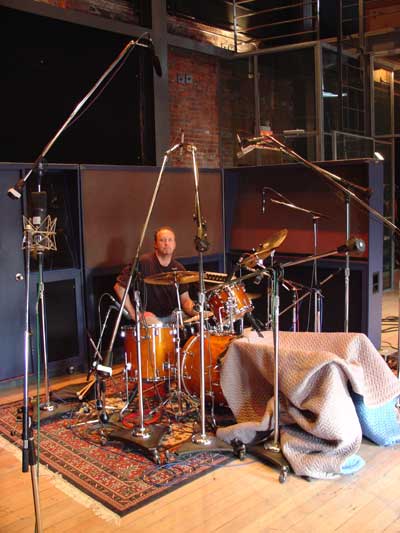Studio Drummer – Be A Lover Of Music
*YOU NEED TO BE VERY WELL VERSED IN ALL MAJOR STYLES OF MUSIC AND THEIR DISTINCT DRUMMING STYLES AND TUNINGS.*
If you’re a rock drummer start listening to the top country drummers. Are there great country studio drummers? You better believe there are, they’re killer! Study the style, what makes them authentic? Remember! What you play means nothing if it’s not connecting intimately with the music. It also means nothing if what you’re playing is stylistically wrong for that particular type of music.
What does that require of you?
*YOU HAVE TO BE A STUDENT OF MUSIC, A LOVER OF MUSIC!*
You have to be, there is no other way. You can’t short cut your way to being very spiritually connected to music that you’re suddenly involved with in a session. You have to connect at a spiritual level and a great deal of that is just simply this: be a music lover.
Notice I didn’t say a drum lover. I said a music lover. My personal belief is that you’re love of music should supercede your love of drumming.
You should also experience this on a session and I hope you do get to this point. You should be able to say to the artist or producer, “I hear very little of my own involvement on this track or.. I don’t hear drums on this at all.” The reason being is that you’re listening to the song and in tune with what the song requires.
Again the song and the artist always come first. The drum kit can be forefront and deserves to be at the appropriate time, but in the right context and the right musical situation. When that is authentically the case it’s a very powerful experience and the instrument again comes into it’s own. But when we’re supporting a song or an artist we are also powerful.
When I was in the touring band Idle Eyes I learned this lesson clearly. It was near the end of the bands existence and I knew it. I was getting bored having done so much road work. I started to overplay. The band we were touring with, Tom Cochrane and Red Rider had a great session drummer who came out on the road with them named Jorn Andersen from Toronto.
He came up to me after a show and said something very memorable to me that I never forgot.
“Don’t try to make it something that it’s not!”
I knew immediately what he was saying! He heard the overplaying and he heard me trying to play this pop music like a fusion drummer. I decided at that point to take that to heart for the rest of my musical career.
The biggest golden rule of all…






